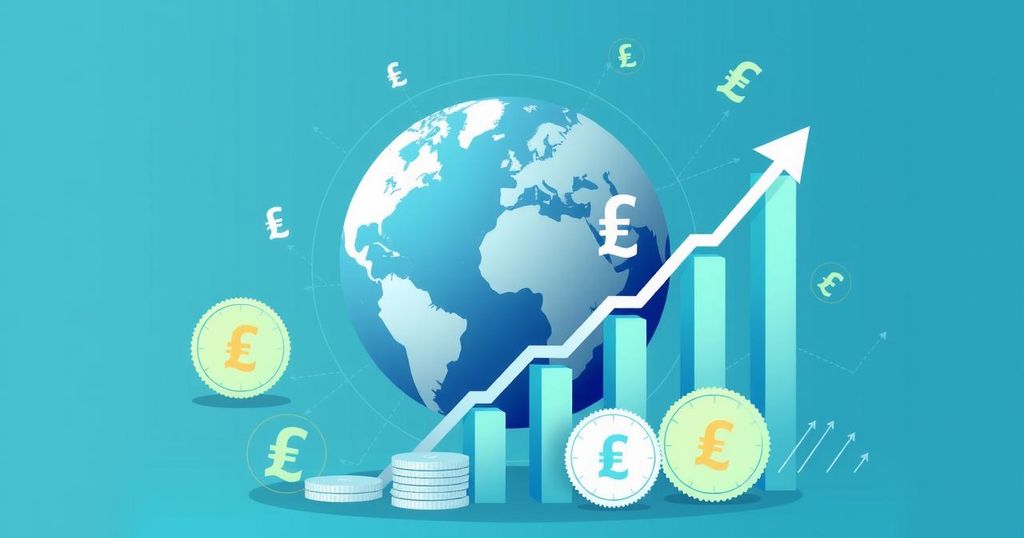The IMF has completed the fourth review of Egypt’s $8 billion Extended Fund Facility, allowing the immediate drawing of $1.2 billion. While Egypt’s economy shows signs of stabilization, structural reforms are inconsistently progressing amidst external challenges. The IMF emphasizes the importance of fiscal sustainability to bolster private sector growth. Recent inflation reductions bring hope, yet underlying economic pressures persist, necessitating ongoing vigilance.
On Tuesday, the International Monetary Fund (IMF) announced that it had completed the fourth review of Egypt’s $8 billion Extended Fund Facility loan, which allows the country to access $1.2 billion immediately. This brings the total disbursements under the program, approved in December 2022, to approximately $3.2 billion. Furthermore, the IMF has approved a new $1.3 billion arrangement for Egypt under the Resilience and Sustainability Facility to support climate change reforms, with more details forthcoming.
The IMF’s review indicated that Egypt’s government has made strides in stabilizing its economy and enhancing market confidence, despite facing a challenging external climate marked by regional tensions and trade disruptions. Economic indicators show signs of recovery; GDP growth is improving, inflation is decreasing, and foreign reserves remain adequate. However, the IMF reports that structural reforms have progressed unevenly, which may hinder future growth and the development of the private sector.
“Strengthening fiscal sustainability requires both effective domestic revenue mobilisation and a comprehensive debt management strategy,” asserted IMF Deputy Managing Director Nigel Clarke. He emphasized that reducing state involvement and creating a fair playing field would position the private sector as the primary growth engine for the nation.
Recent data illustrates a significant drop in Egypt’s annual headline inflation from 24% in January to 12.8% in February, marking the lowest level since March 2022. Nonetheless, economists warn that this decline is largely attributable to a favorable base effect and that several challenges persist, including inflationary pressures from anticipated subsidy cuts, potential resumption of hostilities in Gaza, and economic policies from the new U.S. administration that could increase import costs for Egypt.
The Central Bank of Egypt has maintained high interest rates since March 2024, aligning with the IMF’s recommendation to help temper the economy. Following Russia’s invasion of Ukraine, Egypt sought IMF assistance after experiencing a foreign currency crisis, which led to nearly a 70% devaluation of its currency since March 2022. Although the government advocates a flexible exchange regime, experts, including economist Moustafa Badrah, argue that the currency market remains “managed” by the government.
The IMF indicated that Egypt’s transition to a flexible exchange rate system has yielded positive outcomes but highlighted the need for sustained vigilance to ensure the success of this reform. Despite advancements, the IMF cautioned that significant risks loom over Egypt’s economic prospects, stemming from potential external shocks and challenges in domestic policy implementation. Factors such as regional conflicts, trade disruptions, reform obstacles, and limited competition pose threats to Egypt’s medium-term growth and stability. Managing the social implications of necessary fiscal reforms will also be crucial moving forward.
In summary, the International Monetary Fund’s recent review highlights both progress and ongoing challenges in Egypt’s economic landscape. While disbursements under the Extended Fund Facility provide immediate financial relief, structural reform inconsistencies and external threats underscore the complexities of sustainable growth. The continued focus on fiscal sustainability and the management of social costs will be imperative for Egypt’s economic stability and development in the medium term.
Original Source: www.thenationalnews.com






